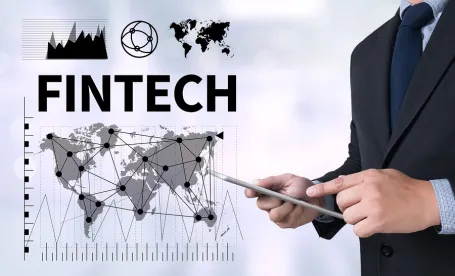Since our prior release of COVID-19: Its Impact on Banking, Fintech, and Payments: FAQs last month, we have truly seen the pandemic’s impact on banking, fintech, and payments. Our team is closely monitoring recent developments and impacts related to COVID-19, and for your insights we are sharing a new compilation of FAQs. This new resource reflects questions we are receiving from our clients, contacts, and colleagues on topics related to the pandemic. We hope you find this information helpful in navigating these rapidly evolving issues and concerns.
1. Q. LEGISLATION FOLLOWING THE CARES ACT IMPLEMENTED THE DISBURSEMENT OF $1,200 PAYMENTS OF COVID-19 STIMULUS FUNDS TO MILLIONS OF AMERICANS. ON MAY 15TH, THE HOUSE OF REPRESENTATIVES PASSED THE HEROES ACT, WHICH WOULD PROVIDE A SECOND STIMULUS CHECK IF IT IS ULTIMATELY PASSED IN THE SENATE AND SIGNED INTO LAW. IN DISTRIBUTING THE FIRST ROUND OF STIMULUS CHECKS, HOW DID THE FEDERAL GOVERNMENT DISTRIBUTE SO MANY PAYMENTS AND MIGHT THOSE METHODS CHANGE FOR ANY SECOND ROUND?
A. In mid-April, the IRS began delivering stimulus payments by direct deposit to those who had received tax refund payments by that method in either 2018 or 2019. Bank account information was also obtained by the IRS from the Social Security Administration and the Veterans Administration and used to send stimulus monies by direct deposit. The IRS also began preparing and sending checks for the remainder, but it only has the capacity to issue 5-7 million checks a week. For direct deposits that are rejected due to closed accounts, the funds are then sent by check by mail. To prevent fraud, the IRS does not allow persons to change their bank account information online. As long as all conditions are met, persons who have not filed a tax return in 2018 or 2019 and who do not receive Social Security, Railroad Retirement, or VA benefits could enter bank account information online and obtain their funds by direct deposit.
Companies such as Intuit® TurboTax® and H&R Block® have had to contend with persons who received 2018 or 2019 tax refunds on one of their prepaid or debit cards but who have lost the cards or closed the accounts. Their websites provide good detail on how their customers will receive their funds, either through a paper check from the government if the account was closed, or from Intuit or H&R Block if they received the funds.
To date, the IRS and Treasury have issued more than 140 million payments worth $239 billion. However, there has been significant criticism that the disbursements are proceeding too slowly. In response, Treasury and the IRS announced on May 18 that they will begin sending approximately 4 million disbursements though prepaid cards that operate on Visa’s network. With the card, the recipient can purchase goods and services, make withdrawals from ATMs, and transfer their funds to a bank account, all without incurring fees. Metabank will mail the cards to eligible recipients and include instructions on activation and use.
We understand Treasury and the IRS are using prepaid cards in order to send stimulus payments to recipients more quickly and in a more convenient, effective form. This shift in strategy could portend a growing role for innovative payments products in the disbursement of federal payments to consumers, which in turn could help the federal government support the unbanked more effectively. Approximately 8 million Americans are completely unbanked, so prepaid cards may be viable alternatives to paper checks. Other payment partners such as PayPal, Square, and Venmo could also play an important role as alternatives to the traditional banking system for future emergency payments, given their adoption rates by the unbanked and their technological features. Thus, there is a huge role for payment and financial services companies to play in such payment programs, so direct advocacy to Congress and the Administration to become part of this infrastructure is important.
2. Q. HOW IS THE COVID-19 PANDEMIC AFFECTING FINTECHS?
A. The COVID-19 pandemic is causing many fintech companies financial distress. As this continues, we expect it will become harder for fintechs to raise needed financing. Banks that have partnered with fintechs have an interest in seeing that their fintech partners survive this crisis. At the same time, we are increasingly hearing from fintech companies about their interest in obtaining financing from their bank partners. We also expect to see a surge of distressed businesses coming up for sale in the months ahead, and that the fintech industry, with its many startups that have benefited from enormous venture capital investment over the past several years, will be hit especially hard. Strong fintechs, their investors, and financial institutions will likely have opportunities in the future to acquire financially distressed fintech companies and their assets.
3. Q. HAS COVID-19 ALSO IMPACTED FINTECHS DUE TO BROKERED DEPOSIT ISSUES?
A. On April 3, 2020, the FDIC extended the comment period for the proposed rule to modernize the brokered deposit restrictions due to “the challenges associated with COVID-19.” The end of the comment period was extended from April 10 to June 9, 2020. That likely means that any positive changes to the regulations will be delayed by at least two months. This delay, coupled with the financial impacts of COVID-19, has the potential of leading to the failure of some fintechs and other companies that are deemed to be acting as deposit brokers under existing FDIC regulations.
Under the Federal Deposit Insurance Act, an undercapitalized insured depository institution may not accept or renew brokered deposits. Although the FDIC may, on a case-by-case basis, grant a waiver for an institution that is at least adequately capitalized (but not well capitalized), there is no guarantee that they will do so. Given the severe hit to the U.S. economy from COVID-19 and the likelihood of high rates of borrower defaults, many financial institutions might struggle with maintaining their well-capitalized status. Those that lose this status could be required to cease accepting brokered deposits, including those provided by fintech and program manager partners. We will be monitoring this situation closely.
4. Q. WHAT FINANCIAL DISTRESS TO BANKS HAS BEEN CAUSED BY COVID-19? WILL COVID-19 LEAD TO BANK FAILURES?
A. During the initial phase of the pandemic, banks suffered no serious economic fallout. Banks were focused on alleviating its impact on customers by providing liquidity support, loan extensions and forbearances, and by participating in the Paycheck Protection Program. Only two small banks failed. But the next phase of the pandemic is likely to be much less benign in its impact on banks as the country shifts from a health crisis to a potential economic crisis.
The current safe harbor bank regulators have extended to banks by allowing them to avoid classification of loan modifications and forbearances as troubled debt restructurings will expire soon. Under the Interagency Statement on Loan Modifications issued on April 7, 2020, the regulatory forbearance for modifications ends on the earlier of the President’s termination of the national emergency or December 31, 2020. By fourth quarter 2020, longer-term adverse impacts of the pandemic rippling through the economy are likely to be apparent. The payment forbearances many borrowers received in second quarter 2020 will by then have expired. The day of reckoning will have arrived -- business tenants without income unable to pay rent, landlords without ability to pay their mortgages, and banks with the resulting sharp increase in non-performing commercial loans. Allowances for loan and lease losses will see dramatic increases. Commercial real estate values will be hit hard. How could this not happen with the catastrophic, pandemic-caused declines expected in second quarter GDP?
The financial health of the banking system in the United States will be under serious stress by year end. Delinquencies will rise. While today banks are better capitalized and have more liquidity than during the Great Recession of 2008, the banking industry is likely to see a significant shake out and more consolidation. Regulators may need to modify at least temporarily the accounting rules by which they evaluated banks for capital adequacy. They simply cannot put thousands of banks in the United States under consent orders. Current GAAP accounting rules for troubled debt restructurings and temporary loan impairments could be modified for regulatory reporting purposes.
The pandemic has put the economy into a sudden and unanticipated recession. A significant increase in bank failures inevitably follows any recession. The banking industry today is better capitalized, has more liquidity, and has greatly improved risk management practices over the past 15 years. While this suggests banks should be able to weather the coming storm, the business of banking will not be getting any easier.
5. Q. HOW WILL COVID-19 IMPACT CONSUMER BANKING? DOES COVID-19 FINALLY USHER IN THE DEMISE OF PAPER CHECKS IN THE U.S.?
A. The pandemic has caused significant adjustments in consumer behavior. The full extent of those adjustments may have profound impacts on the deposit side of the banking business. People have been reluctant to visit bank offices. Will that continue? Perhaps not, but there has long been a trend among younger bank customers to eschew branches and rely on mobile banking. Even before the COVID-19 crisis, many banking institutions have encouraged their customers to move to digital banking solutions, and this effort has accelerated in the last few months since COVID-19. A recent American Bankers Association report (which is updated regularly) lists digital and electronic banking services provided by over 200 small and large banking institutions as options and features that are available for their customers. Indeed, at times like this, many customers are trying electronic banking for the first time.
The same change is happening in consumer payments. For example, a recent Paysafe Report shows 54 percent of U.S. shoppers are using online sellers because they can’t reach the stores, and of those shoppers, 25 percent of U.S. shoppers are going online for the first time. We are also seeing significant increase in contactless payments, because both consumers and merchants prefer to avoid exchanging plastic or cash. A recent MasterCard report indicated a 40 percent increase in contactless transactions. While the United States has lagged behind most other industrialized countries in the implementation of contactless and mobile payments, the impact of the pandemic is now increasing calls for such payment methods.
Despite the opportunities available for electronic banking during the pandemic, such changes in consumer and merchant behavior may not bode well for financial institutions without the resilience or technology resources to accommodate expected changes in consumer preference. Whatever the case, many predict that the business of banking will not be getting easier.
6. Q. WHAT OTHER DISRUPTIONS TO THE BANKING SYSTEM ARE ANTICIPATED AS A RESULT OF THE COVID-19 SITUATION?
A. There are a lot of disruptions to the banking system already as a result of COVID-19. For example, there are significant amounts of cash generated by sellers of stock, virtually all of which is being held in the largest banks. This concentration of funds is detrimental to the smaller banks that could use the funds to lend to small businesses as part of the PPP program and for other lending programs. It is detrimental to the system because it further exacerbates the “too big to fail” problem.
As another example, financial institutions are bracing for a wave of financial covenant defaults by their corporate borrowers, as borrowers’ cash flow and ability to service debt deteriorates. This will begin in earnest when borrowers are required to report second quarter covenant compliance to their lenders. Financial institutions will have to think strategically and practically about how to approach corporate loan modifications, loan pricing, and workouts in the current environment. So far, regulators have encouraged financial institutions to be supportive of their borrowers through the crisis.
7. Q. CAN FORCE MAJEURE CLAUSES BE USED TO AVOID CONTRACT OBLIGATIONS DURING COVID-19?
A. Sometimes, but this greatly depends on the language and facts. Such clauses might be used to excuse performance under a contract, and courts might view this as simply an excuse. There might be a difference, for example, between a business that could not remain open due to a governmental rule and a business that is already struggling and sees COVID-19 as an opportunity to escape a contract. In most cases, the exact language of the force majeure clause could make all the difference.
As discussed in our last FAQ, a force majeure clause is a provision of a contract that excuses a party from performance if an extraordinary event prevents one or both parties from performing their obligations. In addition to “force majeure” provisions that exist in many contracts, there are other “contract-avoidance” doctrines that can also be asserted, such as “impossibility” or “frustration of purpose.” Whether any of these doctrines apply requires a case-by-case determination that is highly dependent on the contract language and the facts associated with the specific event. While you are assessing your obligations under a contract, you may also have to assess a counterparty’s assertion that their threatened or actual non-performance is excused.
8. Q: WILL THE COVID-19 CRISIS IMPACT THE ACCEPTANCE OF CASH? WHAT ARE THE POLICY CONSIDERATIONS INVOLVED IN MOVING TO A CASH-FREE MARKETPLACE? WHAT IS THE PERSPECTIVE OF RETAILERS?
A: Consumers’ limited ability to shop in-person due to the social distancing measures and concerns regarding the transmissibility of COVID-19 via physical notes have made digital payments even more popular during the COVID-19 crisis. In fact, some merchants have instituted “no cash” policies at the point of sale, as a result of these concerns.[1] Whether a greater, longer-term shift to digital payments for in-person payments occurs after the pandemic is over will depend on consumer and merchant preference, but also policy considerations.
In 2019 and prior to the outbreak of COVID-19 in 2020, several states and numerous major cities introduced or enacted policies prohibiting retailers from refusing to accept cash for payment (with various exceptions), or from discouraging or discriminating against the use of cash. Major cities like New York City, San Francisco, and Philadelphia enacted such laws, as did New Jersey and Rhode Island. Proponents for these laws argued that cashless payment policies disadvantaged low-income consumers as they are less likely to have non-cash forms of payment. Even Congress is now considering legislation that would prohibit retailers from implementing cashless payment policies. (See the “Payments Choice Act of 2019”)
Whether other states and cities, or Congress, enact such laws may be informed by COVID-19. Proponents of non-cash payments have argued that such non-cash payments promote public health better than cash as they can minimize physical contact in addition to other benefits such as reducing money laundering, allowing for better tracking of spending, and minimizing the risk of theft. Those who oppose non-cash policies, however, argue that such non-cash policies hurt the consumers most affected by the pandemic: the unbanked and underbanked.
To date, merchants who want to restrict cash payments must check their state and local laws. Such laws may mandate that they accept cash up to certain denominations (such as $20 and less), and refrain from charging consumers who pay with cash more than those who do not, or refrain from posting signs discouraging payment in cash. Some laws allow merchants to implement non-cash policies if the merchant accepts payment with prepaid cards that are provided to consumers on the premises -- so long as such prepaid cards are provided free of charge. Other laws allow merchants to refuse to accept cash if fraud is reasonably suspected, or for certain purchases (such as membership models that require mobile payments, or telephone-based transactions, for instance). COVID-19 could lead to new changes to these laws or whole new laws, of which merchants should be cognizant.
We have heard from retailers that have been significantly impacted by COVID-19; they would just assume avoid cash, at least at the current time. They see cash as a health risk to their staff.
9. Q: HOW HAS COVID-19 IMPACTED CRYPTOCURRENCIES AND STABLECOINS?
A: Like many financial markets, the market cap for digital assets has been volatile for the last few months, declining by approximately 43 percent from March 1 to March 16 (its trough) according to CoinMarketCap. Yet, the market exceeded its March 1 value, as of May 20. Over the first quarter of 2020, the trading volume of stablecoins increased by 8 percent over the previous quarter to over $90 billion. The resiliency (and volatility) of these markets are a product of many factors, but the contactless nature of these assets has played some role in renewed appeal. Global economic volatility has also made stablecoins more attractive financial instruments given their stable values.
The COVID-19 pandemic is also affecting the development of central bank digital currencies (“CBDCs”). The Bank of International Settlements has said that the COVID-19 pandemic may accelerate the development of CBDCs in part by changing consumer views on cash. Recently, China, a leader in CBDC research, announced that it will continue to press forward with its development of a digital renminbi. The Agricultural Bank of China is reportedly conducting tests on a user interface through which consumers could use the digital renminbi (also known as DE/CP) and 19 businesses have been testing transactions with the digital currency. South Korea has also announced plans to accelerate its CBDC pilot, starting a 22-month pilot program. The Bank of England is considering the role private companies could play in issuance and distribution of a pound sterling CBDC, as well as the ability of private digital assets to complement digital national currency.
Various Members of Congress have also proposed legislation establishing pass-through digital wallets to be maintained by the Federal Reserve to reduce the delay between government disbursements and consumers receiving them, particularly in times of crisis. For now, these proposals have not gained much traction, but the clear need for fast and secure disbursement may accelerate the development, use, and regulation of stablecoins and CBDCs. The material structural changes the Libra Association has made to its proposed Libra coin to mollify regulators, who raised fierce opposition prior to the crisis, may have already demonstrated increasing regulatory scrutiny in the sector. Issuers of stablecoins, therefore, should keep regulation and policy developments at the forefront of their business models.
10. Q: HOW DOES THE INCREASED FOCUS ON “CONTACT TRACING” IMPACT INDIVIDUAL PRIVACY RIGHTS? HAS THERE BEEN ANY PROPOSED LEGISLATION?
A: Although Apple and Google announced that they jointly developed contact tracing software that would allow governments and medical professionals to know who has been in close contact with a COVID-19 patient, cities and states so far have been reluctant to go down this path. Instead, state and local governments are still relying primarily on manual tracing methods.
Of course, any such “contact tracing” applications would raise significant privacy concerns. Once these apps are in play, preventing their misuse by law enforcement, governments, and countless other third parties (including criminals), could be difficult if not impossible. The Chair and Subcommittee Chairs of the Senate Commerce Committee have introduced the “COVID-19 Consumer Data Protection Act” (S. 3663) to restrict the use of personal data by such apps. Among other things, the bill would require any business subject to the Federal Trade Commission’s jurisdiction to obtain a consumer’s affirmative express consent to collect, process, or transfer the consumer’s personal health, geolocation, or proximity data for the purposes of tracking the spread of COVID-19, and to disclose at the point of collection how the business will secure, retain, and transfer the data. Once the business stops using the data for the purpose of tracking COVID-19, the business would be required to delete or de-identify the data. However, some privacy advocates see it as doing more to deregulate privacy than to protect consumers. It remains to be seen whether this legislation will gain traction.
NOTES
[1] One common misconception is that cash, as “legal tender,” must be accepted by merchants. But actually, that rule applies only to certain creditors. Unless otherwise restricted by applicable laws, private merchants can refuse to accept cash. See https://www.federalreserve.gov/faqs/currency_12772.htm








 />i
/>i

